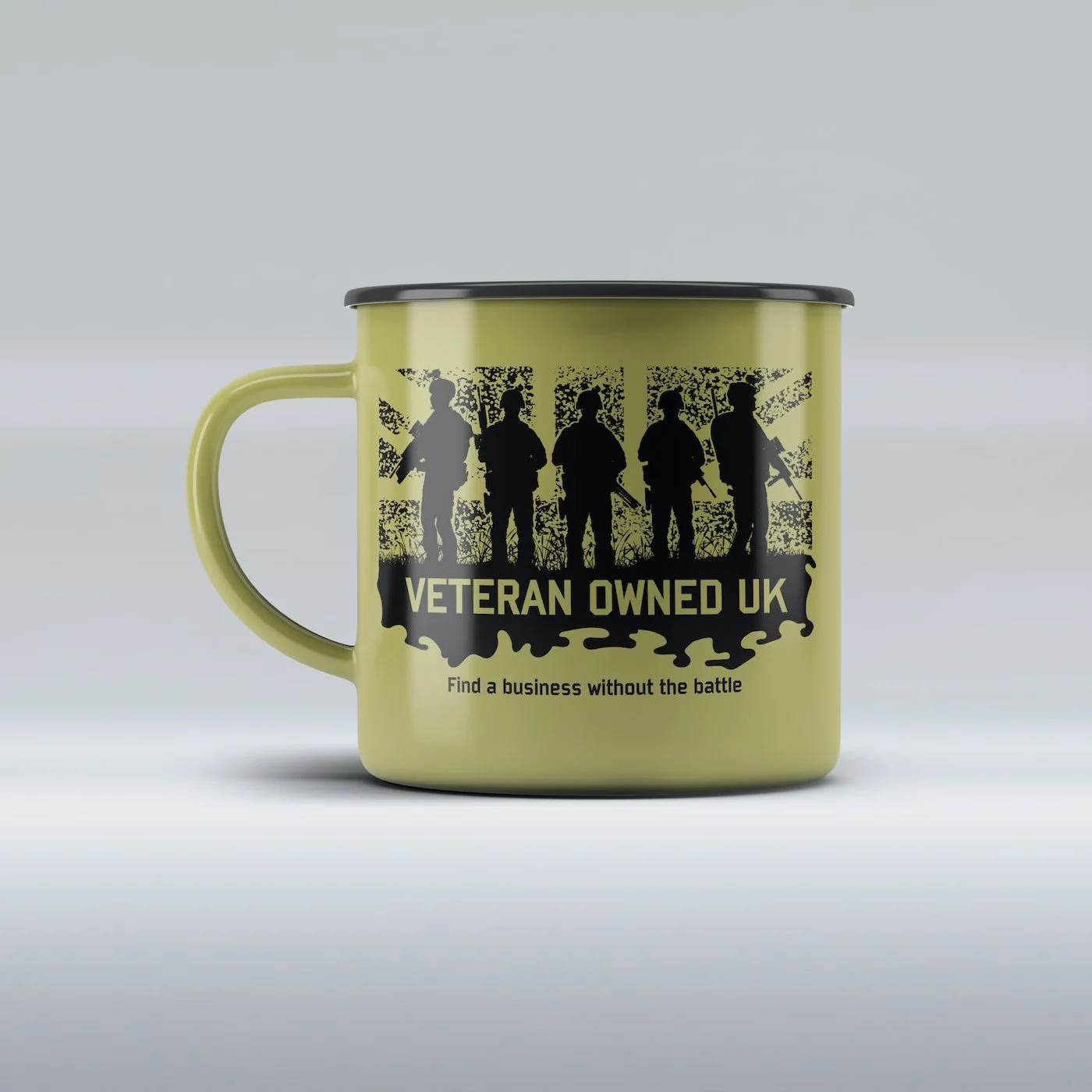Link your brand’s touchpoints to positive emotions to trigger strong recall
A merchandise concept we made for Veteran Owned (UK) back to highlight this innovative strategy.
Believe it or not (this might challenge some notions about decision making!), connecting small, innocuous experiences such as drinking coffee in a mug with your brand’s logo, can increase the ‘System 1’ brain connections (aka the ‘autopilot’, or unconscious mind), which drives increased brand awareness, recall and perception.
If you’ve ever read Atomic Habits by James Clear (we highly recommend it), then you’ll understand the concept that when you associate emotions with a particular behaviour and a visual stimuli of a brand (such as when you put your trainers next to your bed as a reminder to exercise in the morning, and get an exposure to a logo with three stripes or a big tick), you’ll forge a stronger connection than the 2 things on their own.
The neuroscience of behavioural economics suggests we slowly start establishing an emotional connection with the brand, and so the cognitive burden for brand recall is reduced. This emotional association can lead to increased brand loyalty and affinity when you see the logo, tone of voice, or brand touchpoints.
The cognitive priming effect comes into play when coffee drinking experiences with branded merchandise prime the brain to think positively about the brand in unrelated situations. The mere sight of the brand's logo on a coffee mug or other items can trigger those same positive associations, positively influencing perceptions of the brand. If you’ve ever studied the power of emotions in media, you’ll also know the emotions most likely to elicit a response are inspiration and anger (hence why a lot of headlines often aim to evoke one of the two, to make you click).
So, by riding the coattails of a simple act like drinking coffee, you increase the likelihood of strongest brand recall (i.e., when someone needs the product or service you provide, you’re the top of their mind and so stand the highest chance of purchase).

